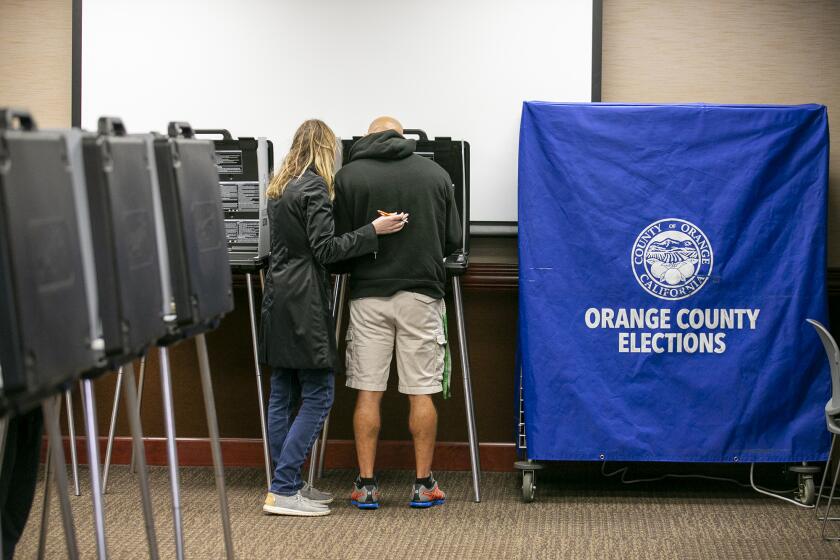Republican effort to ban earmarks fails in Senate
WASHINGTON -- An effort by Senate Republicans to temporarily ban earmarks failed on the Senate floor early Tuesday.
Passage of the measure, sponsored by Sen. Tom Coburn (R-Okla.) and Sen. Claire McCaskill (D-Mo.) would have instituted a moratorium on lawmaker-directed funds through the 2013 fiscal year. But because passage required a suspension of the Senate’s regular procedure, it required 67 votes — two-thirds — of the chamber, to pass.
The procedural motion to bring the amendment to a pending food-safety bill to the floor was defeated by a 39-56 vote. A handful of Democrats, including McCaskill, outgoing Sens. Evan Bayh, of Indiana, and Russ Feingold, of Wisconsin, and Colorado Sens. Michael Bennet and Mark Udall, supported the amendment.
Senate Minority Leader Mitch McConnell, who had long opposed a ban, also voted to support the proposal Tuesday.
Some Republicans, such as James Inhofe (R-Okla.) and Sen. Lisa Murkowski, whose reelection remains contested in Alaska, voted against the motion.
The issue is likely to be revisited by the Senate in new session that begins in January — and may even arise again during this lame-duck session during debate over pending spending bills. Republicans in the Senate already have agreed to their own moratorium, although it isn’t binding. House Republicans have their own ban but could seek to pass a fully enforceable one once they take control of the chamber.
President Obama has said he supported such a ban.
The ban, advocated by Republicans and a handful of Democrats who say earmarks waste taxpayer money, would have applied to legislation that includes an earmark or funds directed outside of a “statutory or administrative formula-driven or competitive award process.”
Critics have argued that such a ban is largely symbolic, since earmarks account for about 1% of the federal budget, and some lawmakers contend that they can be a more efficient way to fund projects in their home states.
Earmarks, said Sen. Richard Durbin (D-Ill.), the Senate assistant majority leader, allow him “to direct federal dollars into projects critically important to our state and its future.”
On the Senate floor Tuesday, Durbin argued that reforms had made the process more transparent and less likely to be abused.
According to the non-partisan Taxpayers for Common Sense, House and Senate spending bills for FY 2011 contain more than 6,500 earmarks at a cost of $9 billion. Those numbers are not final, however, as an omnibus bill to fund the federal government for 2011 has yet to be passed.
More to Read
Get the L.A. Times Politics newsletter
Deeply reported insights into legislation, politics and policy from Sacramento, Washington and beyond. In your inbox three times per week.
You may occasionally receive promotional content from the Los Angeles Times.






